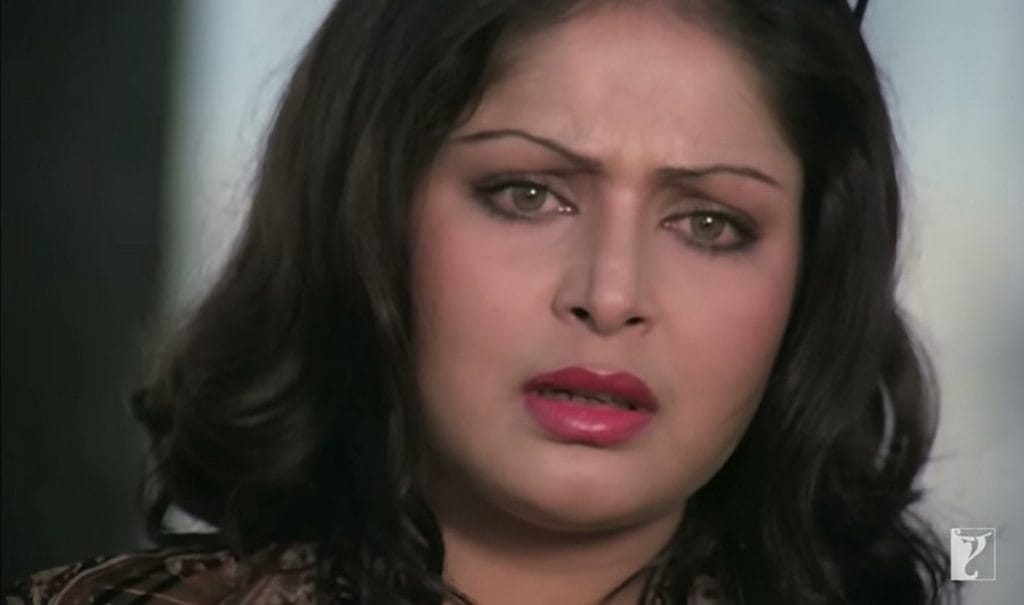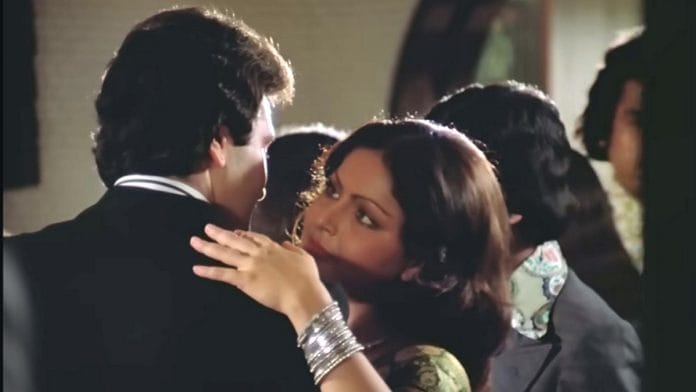Hindi cinema in the 1970s was largely dominated by action-packed masala and melodramatic love stories, but Doosara Aadmi took a less predictable route. It explored grief, psychological trauma, and the ghosts of past love—ideas Bollywood would take decades to fully embrace.
The 1977 film hinted at themes of obsession, emotional infidelity, and the human tendency to seek lost love in new relationships.
When Doosara Aadmi turned 38 in 2015, Rishi Kapoor called it a film that was “ahead of its time”.
Doosara Aadmi is Karan Saxena (Rishi Kapoor) and Timsy (Neetu Kapoor)’s love story, but the star of the show is Nisha (Rakhee) — an advertising professional who could never recover from the tragic loss of her fiance, Avinash (Shashi Kapoor).
Years after his death, she remains emotionally scarred, unable to let go of his memory. Then she meets Karan, who is eager to employ her in his newly launched advertising firm. He reminds her of Avinash and she begins projecting her past love onto him.
This emotional entanglement grows deeper, leading to an unspoken attraction that threatens to disrupt Karan and Timsy’s marriage. What follows is a journey of longing, emotional turmoil, and the painful realisation that some love stories can never truly have a second chapter.
Also Read: Jeevan Mrityu made Dharmendra-Rakhee hit pair. It was a corruption-revenge saga of the 70s
Rakhee’s show all the way
Rakhee delivers one of her most nuanced performances as Nisha. She brings a quiet intensity to the role, making Nisha’s pain and vulnerability feel raw and real.
Her eyes alone carry the weight of loss, making the audience feel her sorrow even when her actions are questionable. Nisha is not a vamp, but a woman trapped in the past.
Rishi Kapoor, in one of his early roles, is charming yet conflicted as Karan.
He effortlessly transitions between being a devoted husband and an unsuspecting participant in Nisha’s emotional turmoil. His chemistry with Neetu Singh is delightful, reflecting the innocence and excitement of young love, which makes the emotional stakes even higher when cracks begin to appear in their marriage.
Neetu Singh’s Timsy, far from being just the sidelined wife, is keenly aware of the shift in Karan and makes it clear that she won’t go down without a fight. Her performance adds a strong emotional counterbalance to the film.
The screenplay, written by Sachin Bhowmick, avoids over-the-top melodrama and instead presents a more realistic take on complex relationships.
Though the script could have done with some more fine-tuning, the dialogues were well-crafted, particularly in scenes where Nisha speaks about her past love or when Timsy confronts Karan about his emotional drift. The tension between the characters is built subtly, giving the film a mature and grounded feel.
Restrained storytelling, timeless melodies
Directed by Ramesh Talwar, Doosara Aadmi is a film that relies more on emotions than dramatic twists. It was bankrolled by Yash Chopra, who gave Talwar full liberty and urged him to not compromise on his vision.
In an interview, Talwar revealed that Chopra stayed away from the sets to avoid putting any additional pressure on him. But he did give suggestions where needed.
Talwar originally considered casting Amitabh Bachchan and Parveen Babi in special appearances, but Chopra advised against it. He argued that their inclusion would dilute the story Talwar intended to tell.
In Doosara Aadmi, Talwar’s direction is restrained yet effective, letting moments breathe and allowing the audience to feel the weight of Nisha’s internal struggles.
Talwar was an assistant director to Chopra for seven films before directing Doosara Aadmi, which turned out to be the last film where the two worked together.

Music, composed by Rajesh Roshan with lyrics by Majrooh Sultanpuri, is the film’s backbone. Chal Kahin Door Nikal Jaayein, a melody steeped in longing, captures the desire to escape painful memories. Kishore Kumar and Lata Mangeshkar’s voices add a layer of sadness that perfectly suits Nisha’s state of mind.
Ranbir Kapoor revealed in the Netflix documentary The Roshans that his father, Rishi Kapoor, would listen to Chal Kahin Door Nikal Jaayein every night at 10:30 while sipping his drinks.
Another track, Nazron Se Keh Do, is charged with unspoken emotions, mirroring Nisha’s inner turmoil as she sees her lost love in Karan.
The music is not just an accessory but deepens the storytelling, reinforcing the emotional weight of the narrative and the characters’ inner conflicts.
Also Read: Raj Kapoor’s Prem Rog is a flawed film on widow remarriage. Rishi Kapoor rescues the damsel
A ‘doosri aurat’ with a difference
The 1970s saw several unconventional heroines coming to the fore—like Zeenat Aman in Dhund and Shabana Azmi in Ankur—but Nisha was different. She embodied vulnerability in a way that hadn’t been done before.
She wasn’t a traditional heroine but a woman who smoked, drank and had deep psychological scars, struggling to separate the past from the present.
The film also subtly explored the idea of emotional infidelity, a topic rarely addressed in Hindi cinema of the 1970s.
It questioned whether love can be replicated and whether the past ever truly lets us go. Such themes have only gained more relevance over time, making the film feel surprisingly modern even today.
Doosara Aadmi reminds us—sometimes, love isn’t about moving on. Sometimes, it’s about learning to live with what was lost.
(Edited by Asavari Singh)






